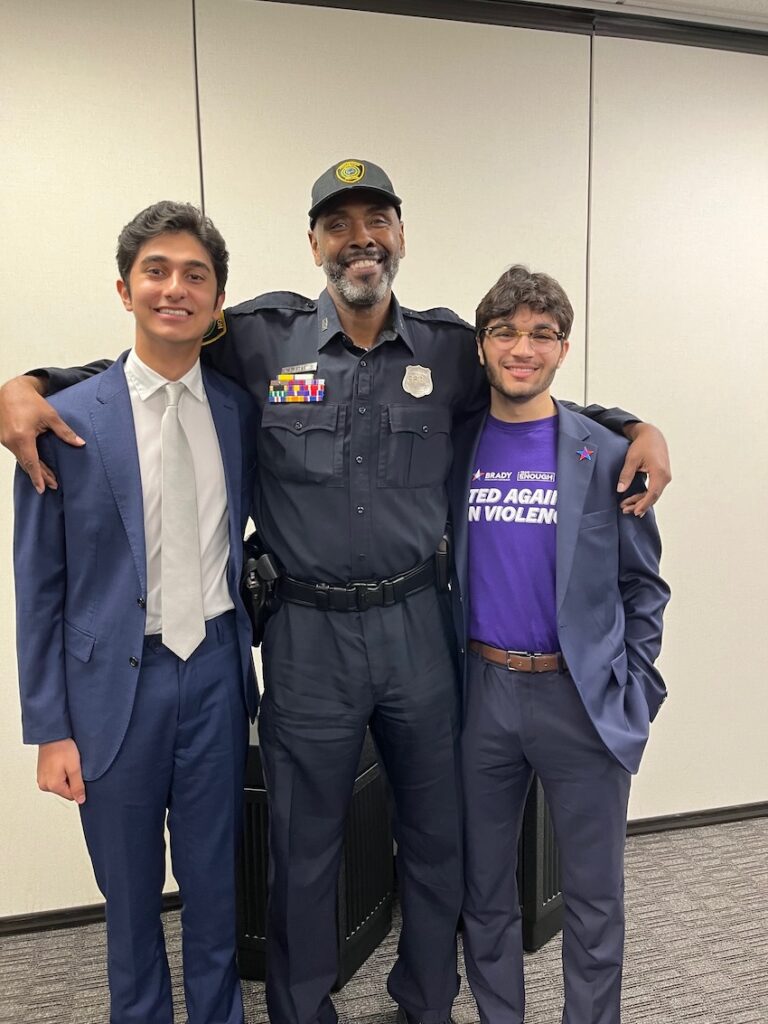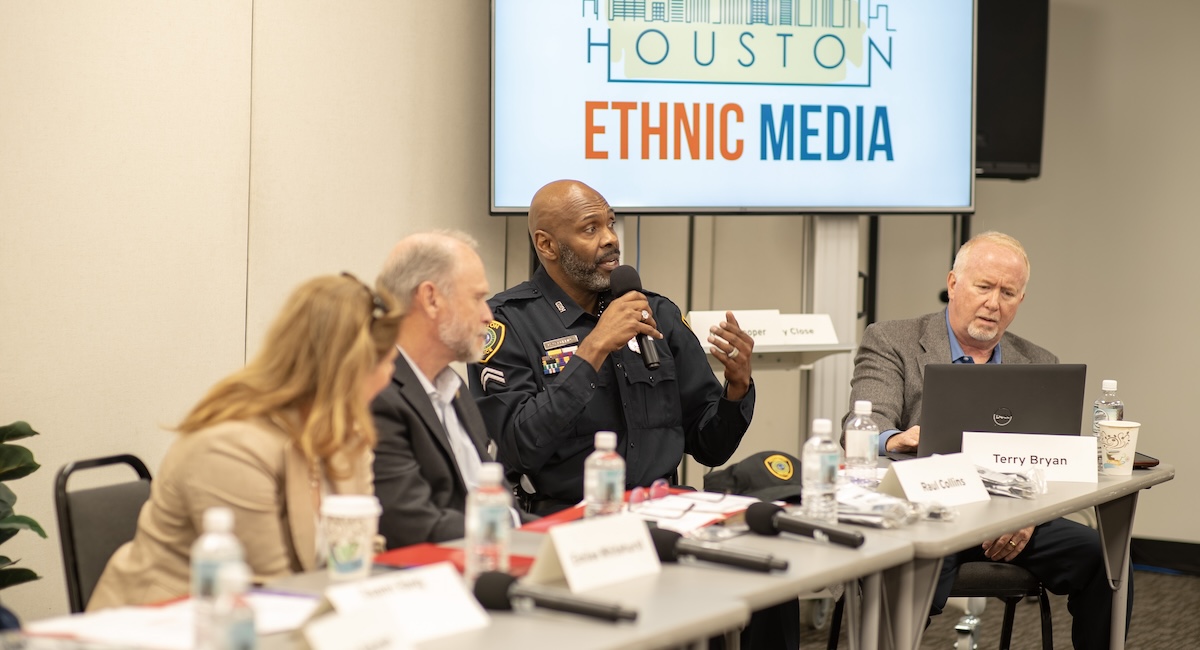HOUSTON – With deaths and injuries from gun violence on the rise nationally, advocates and professionals representing health care and law enforcement met with Houston Ethnic Media reporters to discuss efforts to promote a culture of safety.
Waiting for lawmakers to restrict or outlaw access to lethal guns will take years while the threat is real now, they said.
Dr. Bindi Naik-Mathuria, chief of Pediatric Surgery at the University of Texas Medical Branch, recalled a 3-year-old patient she had treated who’d been shot by a stray bullet through the window of his family’s apartment while watching TV. He survived after multiple surgeries but returned to live in the same apartment.
“Gun violence is now the leading cause of death for children and youth,” Naik-Mathuria said. She urged media to call on Houston’s new mayor, John Whitmire, to reconstitute a Commission Against Violence, which she had once headed.
“The last commissions were initially just focused on writing some policies that we took to the state legislature. None of them were accepted, however, the benefit that I saw was bringing together people from different walks of life in the community and having a community coalition,” she said. “We can do that without the mayor’s office, but I think it would be much more impactful if it was led or supported by the city.”
A 2023 survey found an overwhelming majority of Houston residents supported common-sense gun safety measures, including background checks and a public handgun registry. However, Texas law prohibits municipal governments from any legislation regulating the possession or use of firearms.
State lawmakers have instead passed more than 100 bills loosening restrictions in recent years, including a 2021 law allowing Texans to carry a handgun without license or training.

Data show that across the US more than 50 people are killed by gun violence each day, with a daily average of almost two mass shootings – in which four or more people are injured or killed. Deaths from gun violence in Texas – most of them suicides or homicides – have reached a near thirty-year high.
Emilee Whitehurst, who heads the Houston Area Women’s Center, which serves countless women fleeing family violence, spoke of the intimate connection between domestic violence and gun violence. The idea that a gun at home makes women who live with abusive partners safer is a myth, she said, pointing to the center’s recent study documenting how the presence of a gun escalates arguments into violence.
In the Houston area, 73% of domestic violence deaths between 2019-2022 involved guns, according to the study.
“One of the most important questions that we ask is if there is a gun in the home? Have you been threatened by a gun because we know that if a gun is in the mix, and increasingly it is in the mix, the lethality rate for that individual could go up about five times.”
Saami Baig with the gun control advocacy group March for Our Lives Houston provided testimony of how gun violence has terrorized kids, saying that even just going to school has become a nightmare and that many kids now assume a shooting is not a possibility but an inevitability.
Gen Z is the most interconnected generation thanks to social media, he said, and ever since Parkland in 2018 and the Sandy Hook mass shooting in 2012, preventing gun violence has emerged as the most radical and urgent form of activism young people can take.
Officer Raul Collins, of the Houston Police Department, recounted his own childhood marred by domestic violence and his dedication to educating the community about how to react when and if caught in an incident involving a shooter and, above all, how to secure guns with locks.
“You will disappoint me if all the gun locks I brought today are not taken when I leave,” he said.
Terry Bryan, crisis manager for the College of Biblical Studies where Wednesday’s briefing was held, recounted the steps taken to keep everyone in the college not just safe but feeling safe.
Having a Safety Plan, he urged everyone, was key, echoing speakers’ message that no matter how long it takes for policymakers to move on laws to restrict gun access, a culture of safety is something that’s up to each of us in our homes and communities.
Additional reporting by Nakia Cooper.




